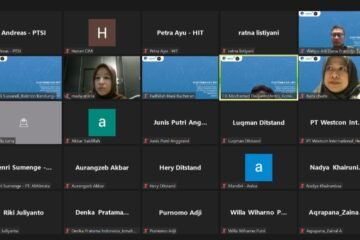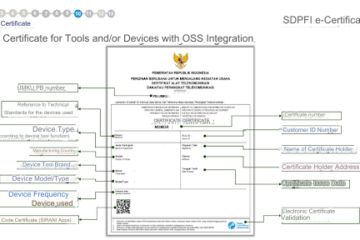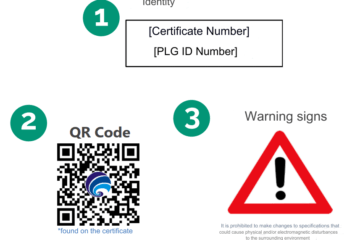Based on the evaluation results, a total of 108 National Laboratory Testing Institutes (BULN) have been granted continued recognition. This recognition is given to BULNs that have fulfilled all requirements and obligations, and their Test Result Reports (TRRs) have been used for certification purposes since the enactment of Director General Regulation 11/2021.
On the other hand, 13 BULNs did not receive continued recognition. This is because their TRRs have not been used in the certification process since the enactment of Director General Regulation 11/2021 until now. Furthermore, the Directorate General of SDPPI cannot ensure the maintenance of testing competence of the respective BULNs.
Additionally, there are 6 BULNs that have been removed but merged with other BULNs in their registration. This is part of the evaluation results of the BULNs conducted by the relevant authorities.
Director General Regulation No. 109 of 2024 has established temporary recognition procedures for Foreign Testing Institutes (BULN) aimed at supporting the certification process of telecommunications equipment and devices in Indonesia.
This recognition is divided into three main categories, with requirements and obligations to be complied with by the respective BULNs.
In the general category, unilateral recognition of BULNs is implemented with a deadline until December 31, 2024. BULNs wishing to subcontract testing can only be accepted if the subcontract is made to BULNs also listed in the designated list.
Additionally, periodic and ad hoc supervision will be implemented, and this policy revokes the previous Director General Regulation, namely Director General Regulation 11/2021.
The criteria for Foreign Testing Institutes include the ability to conduct testing in accordance with Indonesian technical standards, accreditation ISO/IEC 17025 from accrediting bodies signed by APAC-MRA and/or ILAC-MRA, and having at least two other proofs such as accreditation from accrediting bodies of other countries, recognition from international conformity assessment bodies, or telecommunications administration recognition from other countries.
The obligations to be complied with by BULNs include conducting testing in accordance with the applicable standards in Indonesia, attaching a summary of page references from TRRs to Indonesian technical standards as references, mandatory use of Electronic Signatures (E-Signatures) on TRRs, reporting to SDPPI two months before the accreditation expiration date, and reporting any changes occurring in the lab name, lab address, responsible person’s data, legal status, and other matters that may affect testing to SDPPI.
In developing MRA partnerships (Mutual Recognition Arrangement), Indonesia follows a series of strategic steps consisting of several stages:
- MRA Partner (2024): This year, the first step taken is the signing of an MRA with the Republic of Korea. Additionally, both parties also evaluate potential testing laboratories to be recognized within the MRA framework. Initial discussions also commence with other potential MRA partners.
- Second MRA Partner (2025): In the following year, recognition of Korean National Laboratory Testing Institutes (BULN) is carried out within the MRA framework. Subsequently, the signing of MRAs with other MRA partners is done, accompanied by evaluations of potential testing laboratories to be recognized within the MRA. Meanwhile, initial discussions with other potential MRA partners continue.
- Third MRA Partner (2026): This year’s main focus is on the recognition of BULNs from MRA partners, accompanied by the signing of MRAs with other MRA partners. Mutual evaluation of potential testing laboratories to be recognized within the MRA continues, alongside ongoing initial discussions with other potential MRA partners. It is noteworthy that unilateral recognition of BULNs ends on December 31, 2026.
- Fourth MRA Partner (2027): This year is marked by the recognition of BULNs from MRA partners, followed by the signing of MRAs with other MRA partners. The process of evaluating potential testing laboratories to be recognized within the MRA continues, emphasizing that recognition of BULNs can only be done through MRAs. Evaluating the policy impact of MRAs is also an important part of the steps taken at this stage.
The implementation of Director General Regulation No. 109/2024 has significant impacts on the testing process of electronic devices in Indonesia. Based on this regulation, Test Result Reports (TRRs) must be issued or tested in registered laboratories, regardless of their issue date.
Additionally, the testing location and scope must align with the designated list of laboratories. However, subcontractor testing is still allowed as long as the subcontractor laboratory is listed in the recognized laboratory list.
This regulation also prohibits field testing, such as at the device manufacturer’s factory. Furthermore, TRRs must be issued with Electronic Signatures (E-Signatures). Non-radio interface testing and laser safety testing must be conducted at National Testing Institutes (BUDNs).
Moreover, the regulation mentions that there are some changes in the name and/or address of registered laboratories, so parties involved in the electronic device testing process are expected to take note of these changes.



0 Comments